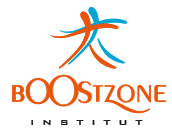I was with a client yesterday, thinking about how to bring collaboration skills (and awareness) to future leaders. Several points come to my mind after this conversation:
– This particular client has broken down its HR department: HR administration, social matters and people development are really managed by very different departments and people. This is pragmatic HR innovation to my mind !
– Putting the whole collaboration affair in the People department is a great approach, but one that should be managed carefully. When looking at collaboration through classic people development lenses, we are brought to think about classic people development services (using training and development to develop new usages, skills, technology skills, …). That’s important but clearly not enough.
In this approach, it is more important to find key issues on which to collaborate (and learn to better collaborate) than to identify « collaboration skills » that would afterwards be deployed through training. I think that training can only come as a support of a wider methodology.
The best way I know is to open collaborative spaces (communities or networks) and launch these communities or networks with minimal support (ensuring only consistency accross communities and in the support given). In these « people development communities », if issues are carefully chosen, people should be oriented towards working differently (contributing rather than producing; rating rather than evaluating; ….), and should be recognized and rewarded for so doing (not financially on a first step).
Why act this way ? The whole idea, to my mind, is not to try to impose standards tools (blogs, wikis, feeds, microblogs, …) or average skills, but to bring the employees to discover the ways that match their needs – that is, that help them solve business issues.
The people development department will not be deciding which are the key skills or competencies to develop, it will rather be building an advanced « framework for collaboration« , in which employees will test and invent the new ways of working that make sense for their particular business (that match their industry, culture, processes).
Discovering how to manage the collective side of people development is one of HR paths to value creation.



Totally agree that empowering employees through a new collaboration framework will inevitably result in a ROI for the business. However, it is not always natural for individuals to push for the collective benefits, especially in the business world, and the people development side is often driven by an individual aspiration. Hence, what we are experiencing in a global company is that communities can help people work more effectively and efficiently, but we are not seeing a natural tendancy to work collectively and break down the organisational silos, rather, we are creating more silos with a new collaboration tool which has just been implemented to the Company worldwide. I would therefore stress the need for some form of official governance whose role will be to guide the new « people development » collaborative culture and provide the necessary support and training.
I agree that pushing for the collective benefits is not alwas natural, it really depends on the company’s culture.
As for collaboration creating new silos, it is a real danger if the implementation of a collaboration tool is conducter right away, without thinking about the collaborative models that are useful for the company’s business. I think that in order to break silos, it is important to show the value of such a break-down.
We also stress the need for consistent governance and support of any collaboration initiative. And this governance must go down to the individual level, as these collaboration-based change management programs really succeed or fail at that level.